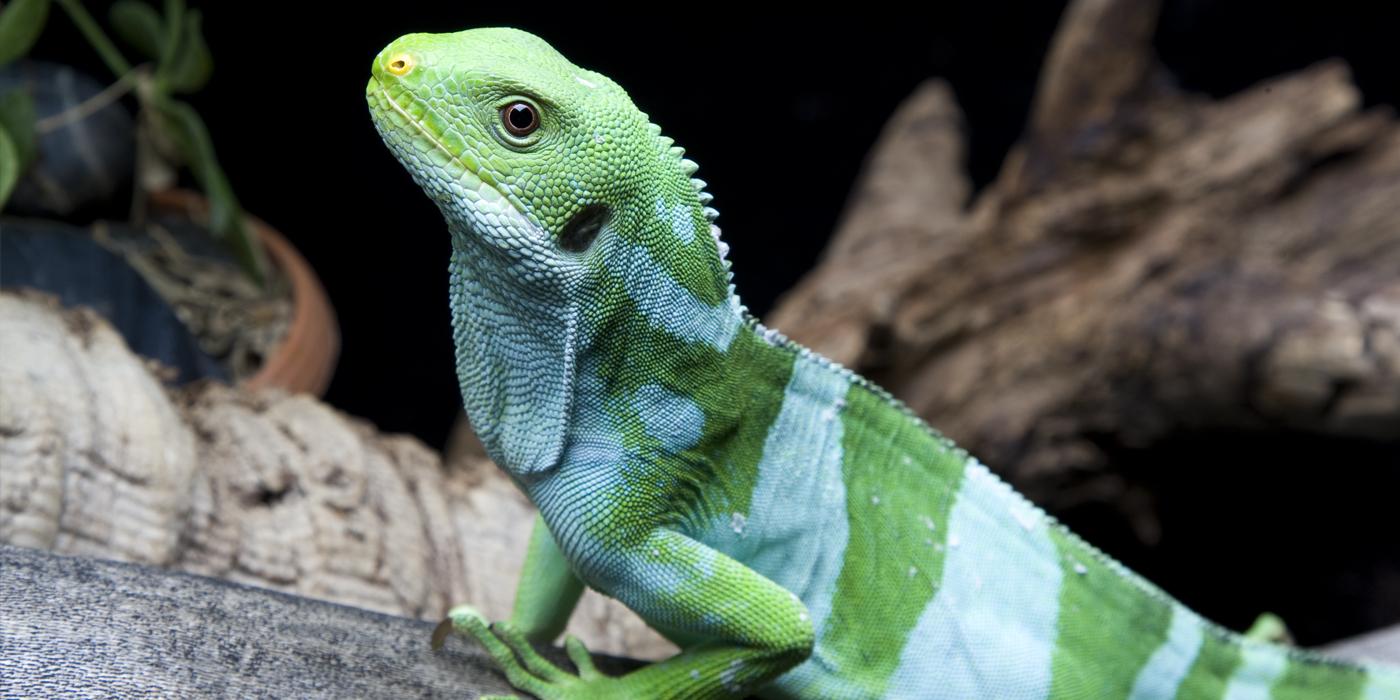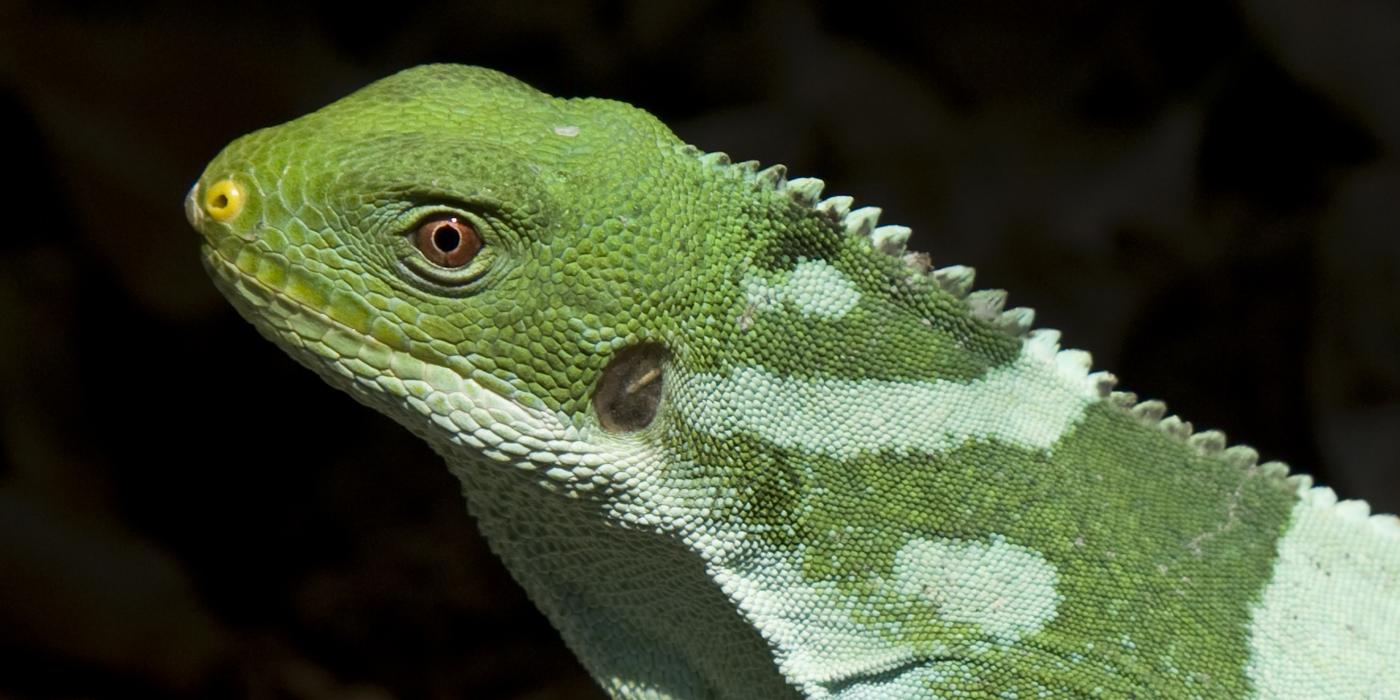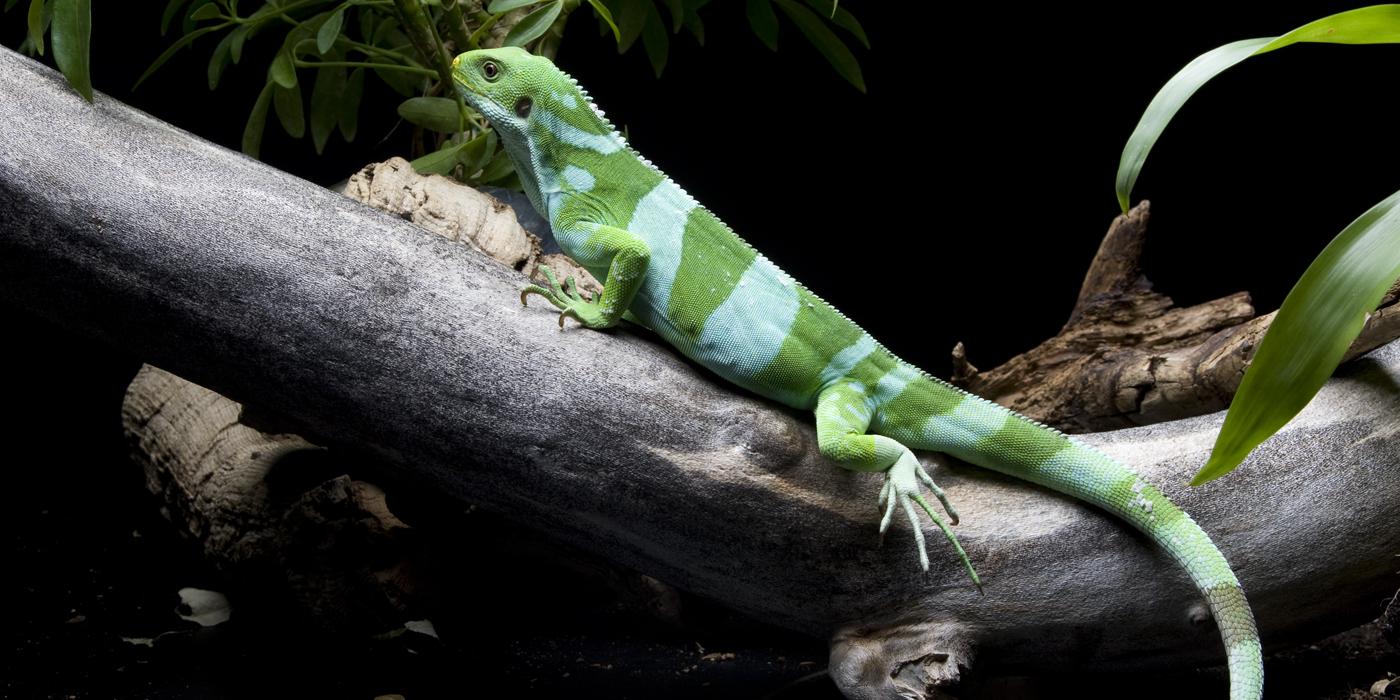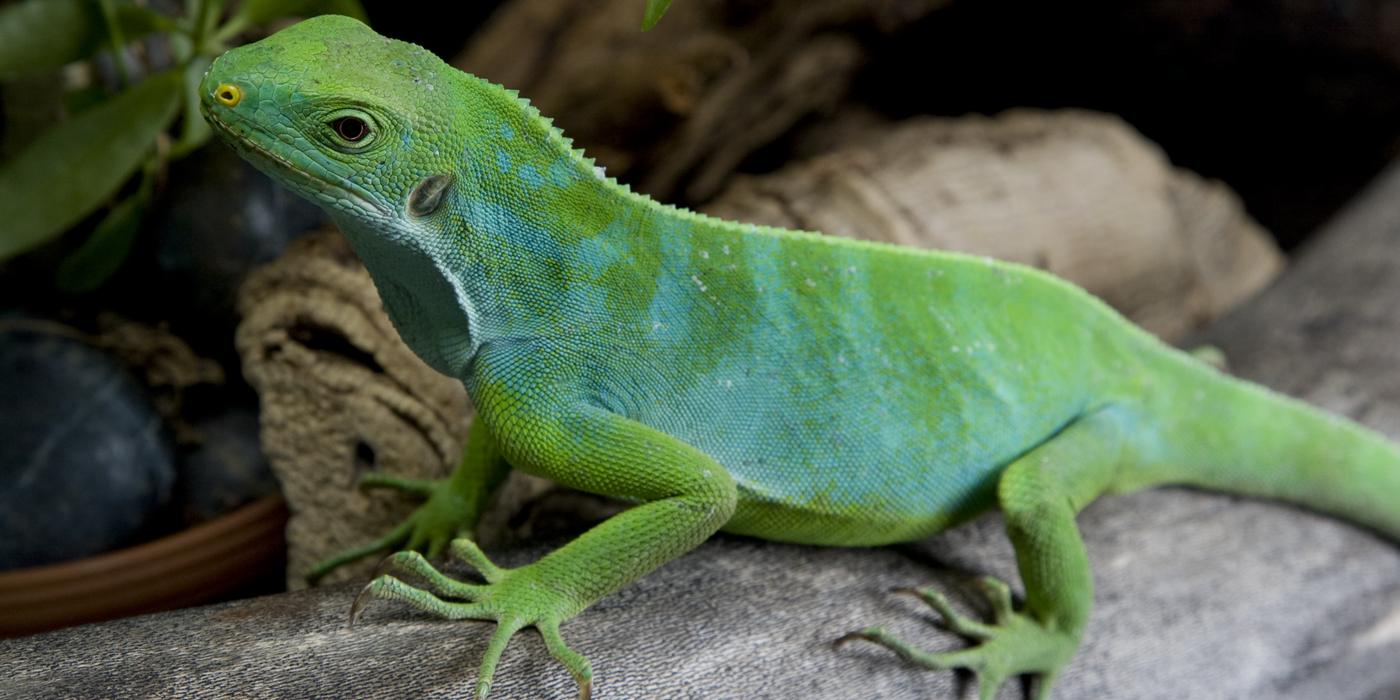Physical Description
Fiji banded iguanas are bright green lizards with crested spines and long tails, which help them balance while climbing trees. Males have wide blue or light green stripes along their body. Females, on the other hand, are generally solid green but may have a few white or pale blue spots. These lizards have reddish-orange eyes and yellow nostrils.
Until recently, Fiji banded iguanas were thought to be the same species as Lau banded iguanas. Further analysis in 2008, revealed them to be two separate species.
Size
Native Habitat
Fiji banded iguanas are only found on the Fijian islands. They are most prevalent on the central and northwestern islands, generally between 656 and 1,640 feet (200 and 500 meters) above sea level. They live in the mesic to moist forests of Viti Levu, Vanua Levu, Ovalau, Viwa, Kadavu and their associated islands.
These lizards tend to prefer the plants found in wet forests. They are arboreal, spending most of their time in trees. Therefore, they are found in areas with high vegetation and trees at least 20 feet (6 meters) tall. Like other iguanas, they are also strong swimmers.
Lifespan
Fiji iguanas raised in Zoos have lived to be 25 years old. In the wild, their lifespan is estimated to be closer to 10 to 15 years.
Food/Eating Habits
Reproduction and Development
Conservation Efforts
It is estimated that the Fiji banded iguana population has decreased by 50 percent in the last 35 to 40 years, and these iguanas are now extinct on some of the islands.
They have experienced extensive habitat loss due to mining, forest burning, logging and agriculture. Human development brings feral cats and black rats, which prey on these lizards. They have also experienced increased predation following the introduction of the small Asian mongoose.
Fiji banded iguanas are protected from international trade due to their status on CITES Appendix I. However, there are no specific conservation measures in place. The species would benefit from local education programs about its importance, as well as from the designation of protected lands, such as national parks. Pest eradication measures should also be taken on islands throughout the lizard's range where mongoose and green iguanas have been introduced.
Help this Species
Practice ecotourism by being an advocate for the environment when you’re on vacation. During your travels, support, visit or volunteer with organizations that protect wildlife. Shop smart too! Avoid buying products made from animals, which could support poaching and the illegal wildlife trade.
Share the story of this animal with others. Simply raising awareness about this species can contribute to its overall protection.
Smithsonian's National Zoo and Conservation Biology Institute. (n.d.). Fiji banded iguana. Retrieved January 10, 2026, from https://nationalzoo.si.edu/animals/fiji-banded-iguana
Animal News






